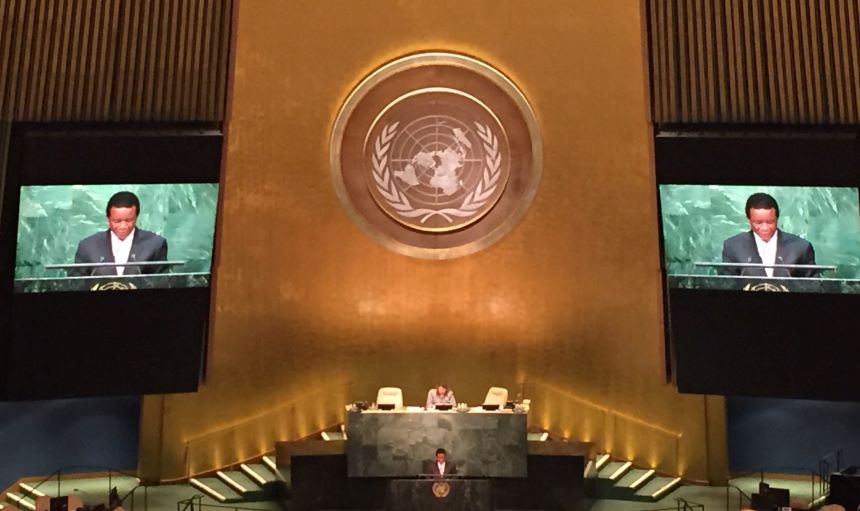For 22 years, 193 countries gather at the U.N. to vote for or against the long standing and controversial U.S.-Cuba policy, the U.S. Embargo against Cuba. The results are virtually the same each year, but the experience of attending the vote is truly one of a kind.
I was driving into New York City on a crisp fall morning, on my way to the United Nations to witness the General Assembly vote on a resolution which had become a perennial event. The U.N. resolution was a declaration to end the embargo imposed by the United States against Cuba.
As I was driving, I contemplated familiar sights from my childhood, specifically meeting my grandfather at a coffee shop on the Upper East Side, almost 40 years ago; it was still there. The resilience of this singular coffee shop in a city known for unrelenting change was amazing, at least for that moment.
As I entered the United Nations, I thought of the resiliency the Cuban people, whom I’ve come to know after working there and with them for almost thirteen years. I’ve witnessed firsthand the effects of the U.S. Embargo against Cuba, how it impacts each generation of Cuban children, and how it has virtually molded life there. However, their spirit, zest for life, love of family and country, doesn’t allow you to feel pity; instead, you feel proud to be among them.
Contrary to the old saying, it’s a small world, for me, the world got bigger in the General Assembly, and I got smaller, or at least I felt my country did. I felt isolated.
In the U.N. General Assembly
I listened to each nation eloquently address the General Assembly regarding the unjustness of the embargo and how it violates international law, prevents other countries from trading with Cuba, violates the U.N. charter, and harms Cuba’s people. One by one they addressed the world, with a singular message and demand – to end the embargo. China, South Africa, Chile, Venezuela, Bolivia, Egypt, Ethiopia, Nicaragua, St. Kitts/Nevis, Djibouti, Vietnam, all stood in unison. Contrary to the old saying, it’s a small world, for me, the world got bigger in the General Assembly, and I got smaller, or at least I felt my country did. I felt isolated.
The Vote
A few hours later, the President of the General Assembly, Mr. John William Ashe from Antigua and Barbuda called for the world to vote. On the giant flat screens in the room, all 193 nations appeared. In a matter of seconds, votes were cast, and the results were displayed. A green dot meant in favor, a red dot – against, and a yellow dot – abstained. The screen filled up with green dots. In the blink of an eye, 188 countries voted for the United States to end the economic embargo on Cuba. What happened to the remaining five countries? Papua, the Marshall Islands and Micronesia abstained. The United States and Israel voted against. While the outcome of the vote was no big surprise, the U.N. has taken up this vote 22 consecutive years, and counting, I stood there in awe. How could I not? 99% of the world disagreed with my country’s policy.
After I left the United Nations, I went to that coffee shop and told the person seating me, “I haven’t been here in 40 years!” His only reply was, “What can I getchya?”
